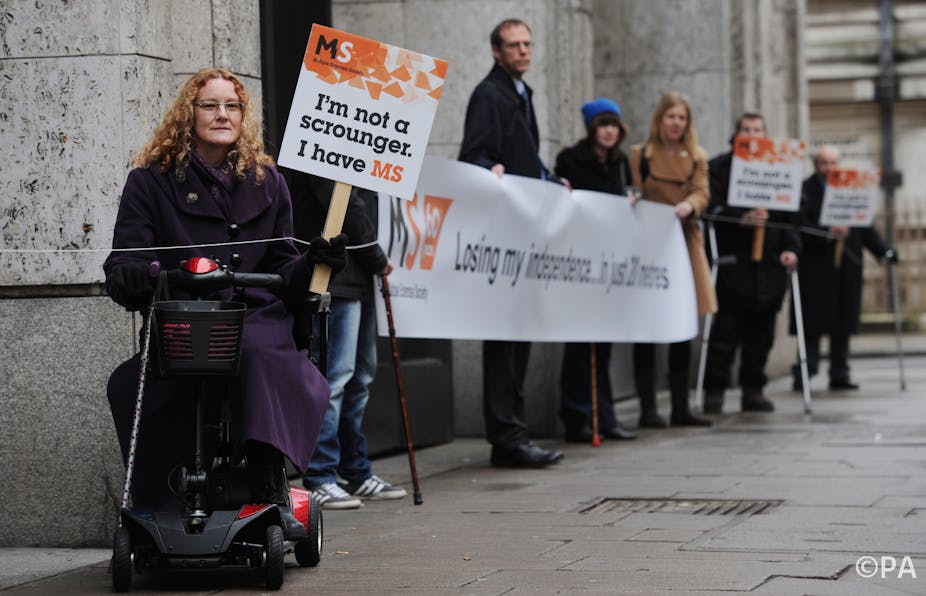The much-criticised healthcare contractor Atos will no longer administer work capability assessments for disabled and sick people, the government has announced. A new provider will take over the contract early next year, with the longer-term aim being to increase competition through multiple providers.
But the danger is that we simply see more of the same; different company, same assessments. So how can we avoid such a situation? The answer is through involving disabled people themselves.
The current assessment protocols and their construction of disability and work capability have been roundly criticised for not connecting with the realities of functional limitations, for their abstract construction of work ability and their often unfair decisions on just who can work.
This may lead to sick or disabled people being told they are work-able when they are not. By contrast others may be told they are not work-able when in fact they might want support to enter paid work. Disabled people are experts in their own lives and understand how disability intersects with the workplace and job search. It’s time we listened to them.
Healthier, but less capable
Work capability assessments were introduced in response to an unprecedented growth in out-of-work benefit claims by sick and disabled people throughout the boom years under Tony Blair. While the background health of the population increased, work related capability seemed to worsen.
This very real policy concern led the then Labour government to “modernise” the work-welfare system. It moved away from ideas of “incapacity” towards a system based on what work people were actually capable of doing.
The work capability assessment was born. It was outsourced, based on the belief that the private sector could better assess and move sick or disabled people closer to paid work, and Atos Healthcare won the contract.
But Atos’ mission was hindered from day one by a simplistic idea of “work capability”. This abstract ability to connect with work, even where such work is unavailable, is simply not fit to deal with real world problems. A system that appropriately fits the labour market would have to recognise the conceptual issues with “work capability”.
These problems filtered through into poor delivery. In a series of reviews commissioned by the government, Professor Malcolm Harrington criticised Atos for inadequate training, the poor treatment of some claimants and for its failure to build a relationship between health-care assessor and DWP decision makers.
My own recent research found evidence of claimants with double brain tumours or severe stroke deficits being deemed “fit to work with support”. The DWP recently revealed that 1,300 people assessed to capable of work between January and November 2011 died in that same year. Yes, Atos has arguably worked with a ham-fisted assessment system. But the target to reduce claimant numbers also badly affected the delivery of the system.
What work?
Decision makers at both Atos and DWP are making judgements about the ability to find work with little recognition of background labour market opportunities. After all, the major growth in incapacity benefit claimants is in post-industrial areas where little new jobs growth has taken place.
The current work capability regime is especially cruel and heartless given that an individual can be deemed work-able (with support) even if no job is available or forthcoming. Those people with high support needs seem condemned to a Dante-esque purgatory, at least until considerably more work becomes available.
We must look again at whether the crisis in disability welfare could be dealt with in-house. Where outsourcing remains, we should look at involving disabled and sick people in the reframing of the assessment and tendering process.
In other areas of disability policy, disabled people themselves have been a key part of the process, from consultation, through delivery and finally review. But such an approach is clearly absent from the work and welfare field.
A government panel – including disabled people – should be created to decide on a new “fit for work?” assessment scheme. The scheme should account for level of disability, support available, and labour market and workplace realities.
When it comes to judging whether someone is capable of working, disabled people are the real experts; let’s start listening to them.

